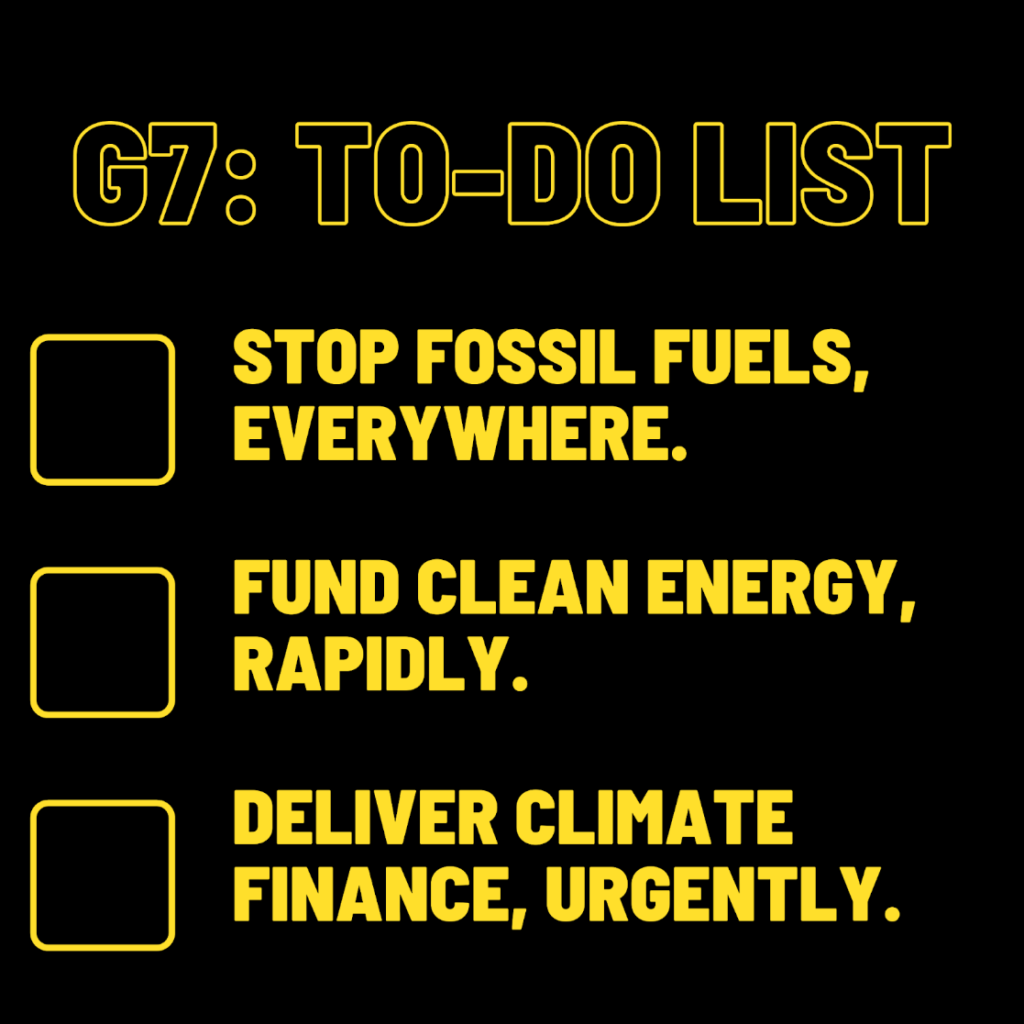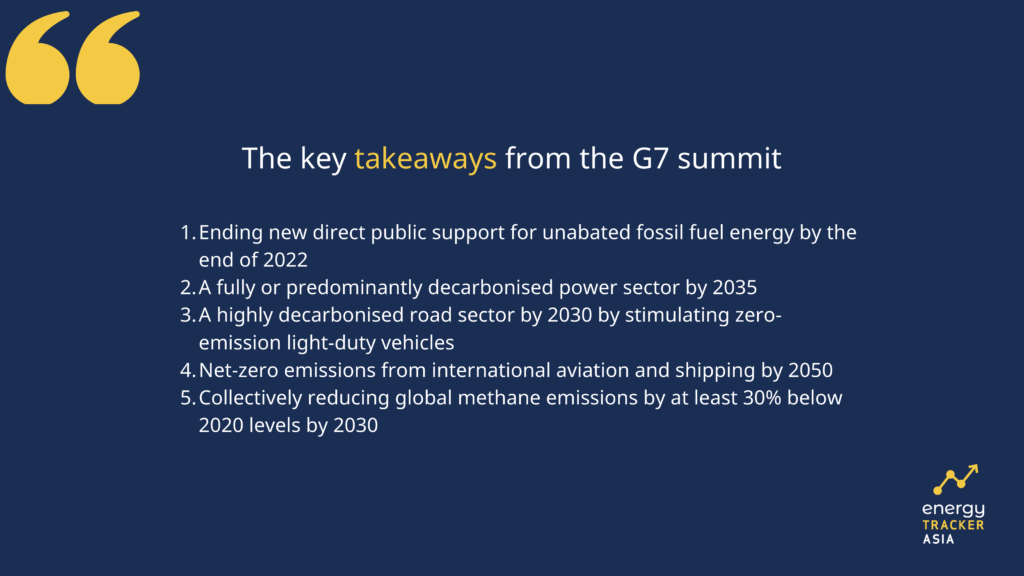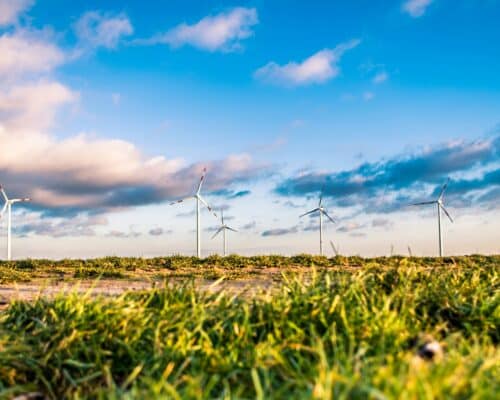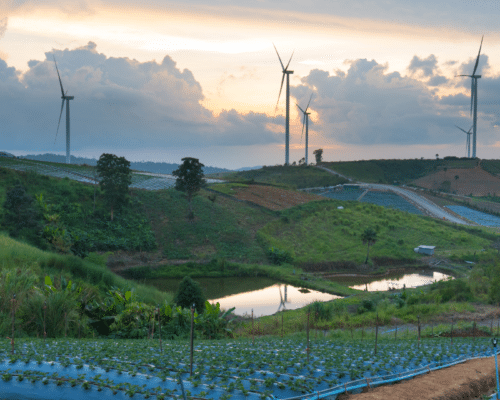The G7 Summit 2022: A Recap of the 48th G7 Meeting and Where Leaders Failed
30 June 2022 – by Viktor Tachev Comments (0)
The outcome of the 48th G7 Summit 2022 in Germany was long-awaited, considering the looming climate crisis and the negligible energy transition progress to date. It was the second big event after the Global Solutions Summit 2022 in Germany. Leaders went into the G7 meeting with several critical topics on the agenda, such as global economy, sustainable planet and energy security etc. However, in hindsight, they didn’t manage to adequately address all the relevant energy transition issues – an alarming sign before COP27 later this year.
Towards the 2022 G7 Summit – the Agenda for the Meeting – Global Economy and Climate Crisis
In the wake of soaring energy prices, unstable supplies and climate disasters in different parts of the world, G7 climate ministers met in May to set the agenda for the G7 meeting. They agreed to focus on several key points, including:
- decarbonising the power sector by 2035,
- ending the finance of unabated thermal coal-fired power generation,
- the use of EVs as new road vehicles by 2030,
- increased clean energy financing for heavy industries by 2030,
- substituting Russian gas with clean power,
- and recognising IEA’s calls for more renewable energy investments.
Chancellor of Germany Olaf Scholz, the host country’s leader, also stated that climate would be a key topic on the G7 agenda. Furthermore, he argued that ditching fossil fuels has become even more critical in the wake of Russia’s fossil fuel-funded war.

G7 Meeting 2022 Summary – the Aftermath
In a nutshell, the key takeaways from the G7 summit include:
- ending new direct public support for unabated fossil fuel energy by the end of 2022 (with some exceptions),
- a fully or predominantly decarbonised power sector by 2035,
- a highly decarbonised road sector by 2030 by stimulating zero-emission light-duty vehicles (including zero-emission public transport and public vehicle fleets),
- net-zero emissions from international aviation and shipping by 2050,
- stepping up efforts to collectively reduce global anthropogenic methane emissions by at least 30% below 2020 levels by 2030, in line with the Global Methane Pledge.
Aside from the above-mentioned concrete targets, leaders also made various commitments and pledges regarding economic stability and an equitable world for a better future.
On Renewable Energy
G7 countries announced a goal to increase the electricity generated by clean energy sources and the use of renewables in all sectors for sustainable development. They promised to work to remove barriers that currently slow down the expansion of clean energy.
The G7 leaders announced a project to establish an international Climate Club by the end of 2022. Its goal is to promote “urgent” and “ambitious” action to align the world with 1.5°C.
They also announced a “strong financial commitment” for ramping up low-carbon and renewable hydrogen for hard-to-abate sectors.
Leaders committed to increasing energy efficiency in all sectors through regulatory frameworks and incentive-based policy instruments. Other measures include public and private finance and public guarantees to de-risk private investments.
On Clean Energy Financing
The G7 leaders said they have “renewed” their commitment to delivering on the collective USD 100 billion climate finance mobilisation goal through 2025. Furthermore, they stressed the importance of implementing the Glasgow Climate Pact’s call to collectively at least double the provision of climate finance for adaptation to developing countries from 2019 levels by 2025.
Support was also announced for the G20 Sustainable Finance Roadmap and the Financial Stability Board Roadmap for Addressing Climate-related Financial Risks.
Another commitment is to scale up climate and disaster risk finance and insurance (CDRFI). At the G7 meeting, leaders also expressed willingness to work towards a global shield against climate risks. More on this should follow by COP27.
The participants in the G7 summit also announced plans to call on multilateral development banks (MDBs) to strengthen climate action – something lacking so far.
On Fossil Fuels
Leaders expressed their position against fossil fuel subsidies and reaffirmed their commitment to eliminating inefficient fossil fuel subsidies by 2025.
G7 countries pledged to reduce their overall reliance on fossil fuels. Furthermore, they announced their intention to support partners in developing countries and transition to clean energy. The launch of the JETP initiative is expected to ease this task. It provides a framework for mobilising public and private investment for a coal-to-clean transition. The framework aims to help developing countries like India, Indonesia and Vietnam.
Another G7 commitment was prioritising concrete and timely steps towards accelerating the phaseout of domestic unabated coal power generation.
G7 countries announced they plan to cut their economies’ dependency on Russian energy without compromising their climate goals. The Ukrainian President virtually attended the meeting.
Other Commitments
The G7 summit participants expressed intention to collaborate with IEA to explore additional measures to reduce price surges, assist developing countries and support global energy market stability.
The leaders will also advocate for the effective implementation of domestic mitigation measures to achieve their NDC targets. In addition, they will stimulate other countries (with a focus on developing ones) to improve their NDCs. G7 nations also plan to help the most vulnerable countries in their climate change adaptation and climate protection efforts.
The Dark Clouds After the G7 Germany 2022
Despite the ambitious political statements made before the summit, climate experts and business leaders remained concerned. They feared that G7 nations might backtrack on the climate commitment to end the funding of fossil fuels.
In hindsight, these fears proved reasonable. The increased pressure from the private sector and various organisations didn’t stop G7 leaders from making some conflicting moves.
First, the G7 leaders had to be very clear that they would end coal by 2030, and they failed.
Furthermore, despite the commitment to reducing fossil fuel reliance, G7 leaders encouraged supplier countries to increase production to stabilise the market. They also considered possible “comprehensive prohibition” of Russian oil unless it was purchased at or below a specific price to be agreed in consultation with international partners. This sends a worrying signal that financial interests might again come on top of environmental and climate reasoning.
In a move directly opposing their pledge to reduce methane emissions, G7 leaders stressed “the important role increased deliveries of LNG can play” in the current market situation. Furthermore, they even acknowledged the need for further investment in the sector if implemented in a climate-consistent manner. In the end, despite his encouraging words before the G7 summit, Chancellor Scholz advocated for LNG – an expensive, financially unreasonable and highly-polluting fossil fuel.
“Chancellor Scholz promised a ‘crucial boost for international climate action’ and he didn’t deliver. The G7 avoided rolling back on past commitments, but the status quo cannot be the benchmark for those powerful leaders, especially not given the climate emergency. Now the G7 leaders have a few months to show the world they are serious – actions matter more than words.“
– Friederike Röder, vice president of Global Citizen
Towards COP27
The first post-summit commentaries of climate analysts and journalists on the ground shared a common word: “worrying”. Others saw “potential positives”. However, the time for this potential is now gone. And when G7 leaders are sending worrying signals, net-zero is becoming more of a pipe dream rather than an achievable goal.
The official communique of the 2022 G7 Summit from the German G7 Presidency is a text with many caveats and insufficient actionable targets. The question still remains: Will the G7 leaders stay true to their word? Or, maybe it will be another situation where nations are promised USD 100 billion in climate financing – a target that has never been reached.
Unfortunately, the only benchmark for this is time. And in a world fighting against climate change, this is a scarce resource.

by Viktor Tachev
Viktor has years of experience in financial markets and energy finance, working as a marketing consultant and content creator for leading institutions, NGOs, and tech startups. He is a regular contributor to knowledge hubs and magazines, tackling the latest trends in sustainability and green energy.
Read more




